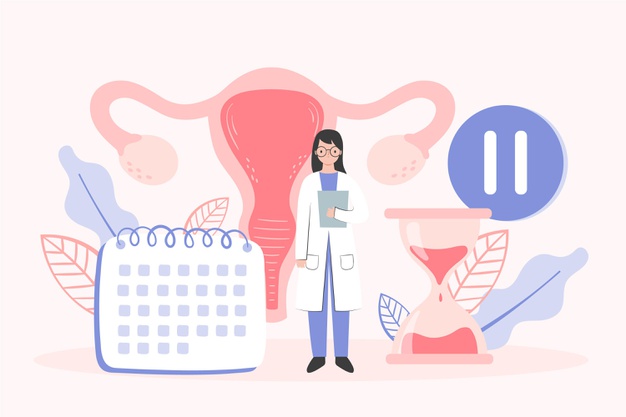
Women are always being the most important part of the family as well as of the world. They usually priorities their family and friends. A woman passes through many situations or changes during their lifespan and these changes affect them internally as well as externally.
The menstrual cycle is one of those changes or phases of any woman’s life. Starting of the menstrual cycle is known as menarche usually starts between the age of 11-15 years. At this age, female is getting young and because of awareness these days they also get emotional and physical support from family and society.
When the menstrual cycle is about to finish, mostly at the age of 45-55 years is known as menopausal transition. This transition can last up to 2-8 years. The time period depends upon age, heredity, and lifestyle.
During this period of time, first of all, women are getting old hence need more emotional and physical support as well as the care which we usually miss…
The following are the few major changes that females use to face during this transition.
- Hormonal imbalances
- Irregular periods
- Hot flashes
- Mood swings like depression or anxiety
- Sleep disorders
- Body aches, chest pain, BP etc
- Indigestion
- Changes in sexual desires
- Hair fall and dull skin
- Weight gain or water retention
- Weakness
- Memory loss
Diet, the right nutrition, and a few lifestyle changes play a very important role in diminishing the symptoms as well as providing strength and improving immunity for further life.
As the severity depends upon various factors like race, ethnicity, family history, and lifestyle.
Here are a few superfoods that females must add to their daily routine during the menopausal transitional phase.
- Antioxidants rich food items like seasonal fruits and vegetables like tomato, broccoli, beans, beetroot, berries, oranges, guava, apple, etc.
- Green leafy vegetables like spinach kale and coriander.
- Protein-rich food like pulses beans, dairy, yogurt, cheese, fish, chicken, eggs, etc.
- Seeds like pumpkin, sunflower, flax, watermelon and sesame seeds, etc.
- Herbal teas, amla aloe Vara juice, raw papaya water, raw turmeric water, etc.
- Optimum water intake as per activity and body requirement.
- Whole grains
- Dark chocolate
- Ashwagandha
- Vitamin and mineral supplements
Food items to avoid or have in moderation during the menopausal transition
- Spicy and packaged food items
- Packed fruit juices and cold drinks
- Alcohol
- Fatty fried foods
- Refined and processed food items
- Caffeine
Along with dietary changes lifestyle modification, yoga, walking, strength training, stretching, proper liquid, and water intake, proper hygiene also help in reducing the symptoms.
In case of severe and critical changes or symptoms, it is recommended to visit gynecologist and nutritionist for proper treatment and guidance.


